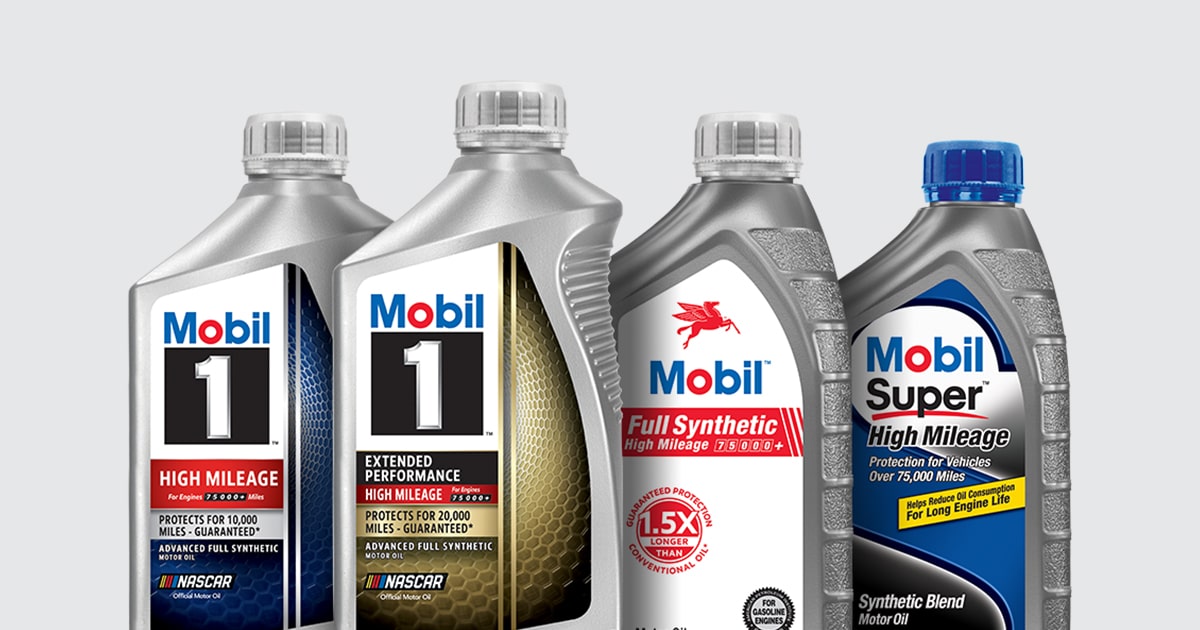The best engine oil for long-distance driving is a fully synthetic oil with a high viscosity index. It offers superior engine protection and fuel efficiency.
Embarking on long-distance journeys requires a reliable vehicle, and the lifeblood of your car’s performance is the engine oil. Ensuring you use fully synthetic oil enhances engine lubrication, minimizes friction, and withstands the high temperatures of extended trips. Good quality engine oil maximizes fuel economy and extends the intervals between oil changes, which is crucial for those covering vast distances.
Choose an oil that meets the manufacturer’s suggested viscosity for your car, and look for additives that clean and protect the engine to enhance its lifespan. Remember to check for industry certifications on the oil, which guarantee that it meets specific performance standards. Quality engine oil is an investment in your vehicle’s health and your peace of mind while on the road.
The Role of Engine Oil in Vehicle Performance
Engine oil is like the lifeblood of your car, especially when embarking on long-distance drives. It does much more than just lubricate; it plays a crucial role in ensuring peak vehicle performance and longevity. Understanding this role helps in selecting the best engine oil for your adventures on the open road.
Protecting Engine Components
Long drives demand a lot from your engine. The right oil minimizes wear and tear, even after many miles. Here’s how:
- Lubricates moving parts to prevent friction and damage.
- Keeps the engine clean by removing contaminants.
- Reduces heat, protecting against overheating.
Improving Fuel Efficiency
Fuel is precious during long trips. The right engine oil makes a difference:
- Quality oil reduces engine drag, easing the workload.
- With less resistance, the engine uses fuel more efficiently.
- Better efficiency means longer distances without refueling.
Your choice in engine oil affects these aspects and more. Select wisely to keep your vehicle running smoothly, mile after mile.
Viscosity Grades And What They Mean For Your Engine
When choosing engine oil for long-distance travel, understanding viscosity grades is critical. These grades impact your engine’s performance and longevity. Think of viscosity as the oil’s thickness or resistance to flow. The right viscosity ensures smooth engine operation under various conditions.
Understanding Viscosity Ratings
The numbers on an oil bottle reveal its viscosity rating. For instance, a label like “5W-30” holds clues about how the oil behaves in cold and hot temperatures. The first number followed by “W” (stands for winter) measures the oil’s flow at cold temperatures. A lower number means the oil stays thinner in the cold; thus, your engine starts easily. The second number indicates the oil’s thickness at high temperatures. Higher numbers mean the oil is thicker, protecting your engine better when it’s hot.
- Low winter rating: Good for cold starts
- High summer rating: Better high-temperature protection
Matching Oil Viscosity To Driving Conditions
Selecting the correct oil viscosity for long-distance driving involves considering the temperatures your engine will face. For consistent performance, align your oil’s viscosity with your most common driving conditions.
| Temperature | Recommended Viscosity |
|---|---|
| Cold Climates | Lower W number (e.g., 5W-30) |
| Hot Climates | Higher last number (e.g., 10W-40) |
Long distance means constant engine work. A wrong viscosity choice leads to increased wear, poor fuel economy, or even engine damage. For example, using a low-viscosity oil in high heat may cause it to thin out more than necessary, compromising engine protection. Conversely, too thick an oil in cold conditions can strain your engine on startup.
Remember, your vehicle’s manual provides manufacturer-recommended oil viscosities. Stick to these guidelines for optimal engine health and efficiency.
Conventional Vs. Synthetic Oils For Extended Drives
Choosing the right engine oil is crucial for long road trips. Two popular types are conventional and synthetic oils. Your car’s longevity and performance on these extended drives often depend on this choice.
Pros And Cons Of Conventional Oil
Conventional oil, or mineral oil, is a traditional lubricant for engines. Made from refined crude oil, it has been the standard choice for years.
- Pros:
- Cost-effective compared to synthetic oil
- Adequate protection for engines with low to moderate mileage
- Sufficient for older engine designs
- Cons:
- Requires more frequent changes
- Less effective at extreme temperatures
- Can lead to more engine build-up over time
Benefits Of Synthetic Oil For Long Trips
Synthetic oil excels during long-distance driving. It’s specifically engineered to perform in tough conditions.
| Benefit | Description |
|---|---|
| Enhanced Viscosity | Maintains performance across a wider range of temperatures |
| Better Engine Protection | Reduces wear and tear during long trips |
| Longer Change Intervals | Lasts longer, meaning fewer oil changes are needed |
| Fuel Efficiency | Contributes to improved fuel economy and fewer emissions |
| Cleaner Operation | Less prone to forming sludge, keeping engines cleaner |

Credit: www.motorcycle.com
High-mileage Oils: Are They Worth It?
Choosing the right engine oil can be pivotal for long-distance journeys. Long drives put extra strain on your vehicle’s engine. High-mileage oils promise to protect older engines better. But are they worth the investment? Let’s explore.
What Makes High-mileage Oil Different?
High-mileage oils are specially formulated for cars with more than 75,000 miles on the odometer. They contain unique additives to reduce oil burn-off and leaks. Such oils also have conditioners that swell gaskets and seals. This helps prevent future leaks.
Assessing Value For Long-distance Drivers
Long-distance drivers should consider the benefits versus the cost. High-mileage oils can:
- Reduce wear and tear
- Extend engine life
- Improve performance
The value comes from lower maintenance costs and fewer issues on the road. It’s vital for those who count on their vehicle’s reliability during long trips.
| Factor | High-Mileage Oil | Regular Oil |
|---|---|---|
| Additives | Enhanced for engine protection | Standard mix |
| Engine Condition | Older engines with wear | Typically newer engines |
| Cost | Higher | Lower |
Drivers must weigh these factors based on their specific situation. A high-mileage oil could be a smart choice for long-term savings and peace of mind.
Additives That Enhance Long-distance Driving
Engine oil is the lifeblood of your vehicle, especially during long-distance trips. It goes beyond mere lubrication. Advanced additives in engine oils play crucial roles. These additives keep your engine running smoothly, mile after mile. Let’s dive into the essentials of these additives.
Key Additives For Engine Protection
Modern engine oils include special ingredients to protect engines. These key additives fight against wear, corrosion, and build-up.
- Anti-wear agents: They form protective layers on metal parts.
- Detergents: They keep engines clean by preventing deposits.
- Dispersants: These help suspend dirt and soot particles.
- Antioxidants: They stop oil from breaking down under high temperatures.
- Friction modifiers: These reduce friction for smooth engine performance.
- Viscosity index improvers: They ensure oil flows well in various conditions.
These additives are vital for your car’s endurance on long drives. They maintain engine health and efficiency.
When To Consider Oil Additives
Sometimes, your engine might need an extra boost. This is when you should think about adding oil additives.
- Before starting a long drive
- If your car has high mileage
- When operating in extreme temperatures
- If towing heavy loads
Choose the right time to give your engine this added protection. It ensures peak performance during those extended journeys.

Credit: www.mobil.com
Best Practices For Oil Changes On The Open Road
Ready to roll for miles on end? Long-distance driving calls for the right engine oil to ensure your journey is smooth. Oil keeps engines happy and healthy, especially when cruising over long stretches.
But, regular pit stops are crucial for oil changes. These swaps-in-the-middle-of-nowhere ensure peak performance and longevity of your ride. A disciplined approach to oil maintenance matters, from knowing when to change to managing the deed while touring.
Determining Change Frequency For Extended Travel
Check your car’s manual. Seek advice from pros. Match oil change intervals with planned trips. This trifecta sets the pace for determining when to change your oil while far from home. Not all engines are alike, and neither are their appetites for fresh oil.
| Travel Type | Oil Change Frequency |
|---|---|
| Highway Driving | Every 5,000-7,500 miles |
| Tough Terrain | Every 3,000-5,000 miles |
Modern synthetic oils work wonders for longer periods, but always align with your manufacturer’s suggestions.
- Track your mileage.
- Consider driving conditions.
- Inspect oil texture and color regularly.
Oil Change Tips While Touring
Be prepared. Carry essentials and know your stops. Have a list of service stations and automotive shops handy. Map them out in alignment with your travel route and expected mileage intervals.
- Keep an eye out for service signs.
- Stock up on the right oil type and a quality filter.
- Store basic oil change tools in your trunk.
DIY or pro? Choose based on skills and comfort. If you’re handy, a self-service oil change can be a breeze. If not, let the experts dive in. Either way, stay on top of oil changes to keep your engine humming mile after mile.
Top Brands And Products For Endurance Drivers
Endurance drivers need engine oils that perform under pressure. The best oils protect engines over vast distances, resisting wear and keeping performance smooth. Many brands claim their products are up to the task, but some stand out. These are built for the long haul. They keep cars running like new, through heat, cold, and continuous use.
Leading Oil Brands For Reliability
Bold choices in engine oils mean fewer worries on the road. The leading brands combine strong heritage with advanced technology. Here are a few:
- Castrol: Known for high-performance oils
- Mobil 1: Trusted by professionals
- Valvoline: Offers great high-mileage options
- Royal Purple: Provides enhanced engine longevity
- Amsoil: Focuses on synthetic oil innovation
Reviewing Top-rated Engine Oils
Dedicated drivers favor a few engine oils above the rest. Look at these standout options:
| Product Name | Viscosity | Synthetic | Rating |
|---|---|---|---|
| Mobil 1 Extended Performance | 5W-30 | Yes | 5 Stars |
| Castrol EDGE High Mileage | 10W-30 | Yes | 5 Stars |
| Valvoline MaxLife | 5W-20 | Yes | 4.5 Stars |
| Royal Purple HMX | 10W-30 | Yes | 4.5 Stars |
| Amsoil Signature Series | 0W-20 | Yes | 5 Stars |
These products have proven success. They cover a range of viscosities and types to fit any car’s needs. They ensure engines stay clean, protected, and perform at their best, no matter the distance.
Personalizing Your Oil Choice
Choosing the right engine oil for long-distance driving is crucial. Diving into Personalizing Your Oil Choice helps tailor your selection to your specific needs. Journey farther and protect your engine with personalized oil.
Assessing Your Vehicle’s Needs
Every car is unique. The vehicle’s manual provides vital information on oil specifications. The engine design dictates oil type. Regular or synthetic? Discover your car’s preference. Choose oil that aligns with your engine’s design and manufacturer’s recommendations.
- Check your vehicle’s manual for the manufacturer’s oil suggestions.
- Consider engine type; turbocharged engines may need special oil.
- Analyze your driving frequency; more travel may require durable oil.
Taking Climate and Terrain into Account
Climate and terrain impact oil performance. Hot, cold, wet, or dry—each environment requires a distinctive oil viscosity. The right viscosity ensures smooth engine operation under diverse conditions. Altitude and off-road driving factor in too.
| Climate | Recommended Oil Viscosity |
|---|---|
| Hot | Thicker oil, e.g., 10W-40 |
| Cold | Thinner oil, e.g., 5W-30 |
| Mixed | Multi-grade oil, e.g., 5W-50 |
Consider terrain too. Rough paths may demand more resilient oil. High-performance options keep engines protected on uneven journeys.
- Pick a higher viscosity for hot climates.
- Go lower in colder environments.
- Heavy-duty oils for rough terrains.
The Environmental Impact of Oil Selection
Choosing the best engine oil for long drives goes beyond engine performance. It also touches on how your choice affects the environment. The right oil selection can make a big difference in reducing harmful emissions.
Eco-friendly Oil Options
Not all oils are the same when it comes to being kind to the earth. Biodegradable oils break down easily and cause less harm to soil and water. Look for products marked as ‘eco-friendly’ or ‘green’. These oils can come from sustainable sources. They often have additives that help clean the engine and reduce emissions.
- Opt for synthetic oils – they last longer and perform better.
- Seek out oils with reduced sulfur content.
- Choose oils that offer high fuel efficiency.
Reducing Your Carbon Footprint With The Right Oil
Using the right kind of oil not only extends the life of your car’s engine but also helps reduce your carbon footprint. Improved fuel economy means your car burns less fuel over time. This leads to less CO2 going into the atmosphere. Let’s reduce emissions with proper oil selection.
| Oil Type | Benefits | Environmental Impact |
|---|---|---|
| Synthetic | Better performance, longer life | Reduced emissions, less frequent changes |
| Conventional | Cost-effective | Higher emissions, more changes needed |
| High Mileage | Designed for older engines | May help reduce oil leaks and pollution |

Credit: www.motorcycle.com
Expert Advice And User Experiences
The right engine oil plays a pivotal role in your vehicle’s performance, especially during long-distance travel. Understanding this, let’s explore valuable insights from industry experts and stories from drivers who’ve clocked countless miles.
Insights From Automotive Professionals
Automotive experts stress the importance of viscosity and oil quality for enduring treks. Highest quality synthetic oils often come recommended due to their longevity and engine protection capabilities.
| Synthetic Oil Benefits | Why it Matters |
|---|---|
| Better Temperature Stability | Maintains performance in extreme conditions |
| Reduced Engine Wear | Increases engine lifespan |
| Improved Fuel Economy | Reduces long-term costs |
Experts also suggest checking your manual for manufacturer recommendations. Stick to oil change intervals specified for severe service if you travel long distances frequently.
- Examine API service ratings.
- Choose oil with additives that clean and protect the engine.
- Look for high mileage oils if your vehicle has traveled over 75,000 miles.
Real-world Stories From Long-distance Drivers
Long-distance drivers often share stories about durable engine oils that have served them well. Customer experiences can be incredibly insightful.
One driver recounted a trip across the country with an oil that offered excellent thermal resistance. Their car ran smoothly despite varying climates and road conditions. Another shared an anecdote of changing to high-quality synthetic oil and noticing a distinct improvement in engine noise and smoother gear shifts.
- Frequent oil changes kept engines in top condition.
- Drivers experienced fewer breakdowns with high-grade oils.
- Loyal brand users reported consistent vehicle performance.
Such accounts underline the significance of choosing a robust oil for your long journeys. The blend of professional know-how and user experiences serves as a compass for making the right choice for your engine.
Frequently Asked Questions
What Is The Best Oil For Long Road Trips?
The best oil for long road trips is a high-quality synthetic oil with a viscosity suitable for your vehicle’s engine, as recommended in the owner’s manual.
Which Engine Oil Is Best For Long Distance?
The best engine oil for long distance is a high-quality synthetic oil with long-life properties, such as those meeting API SN and ILSAC GF-5 standards.
What Is The Best Oil For Highway Driving?
The best oil for highway driving depends on your vehicle’s specifications. Typically, synthetic oil is superior for sustained high-speed travel due to its durability and better performance under extreme conditions. Always consult your owner’s manual for the manufacturer’s recommendations.
What Oil Is Best For My High Mileage Car?
High mileage cars benefit from synthetic blend or full synthetic oil, which offer enhanced protection and longevity for engines over 75,000 miles. Always check your vehicle’s manual for the manufacturer’s recommendation.
Conclusion
Selecting the right engine oil for your long-distance travels profoundly impacts your vehicle’s performance and longevity. Prioritize oils with high viscosity stability, thermal resistance, and suitable additive packages. Remember, the perfect blend ensures smoother rides and fewer pit stops. Drive safe and choose wisely for enduring engine health.

